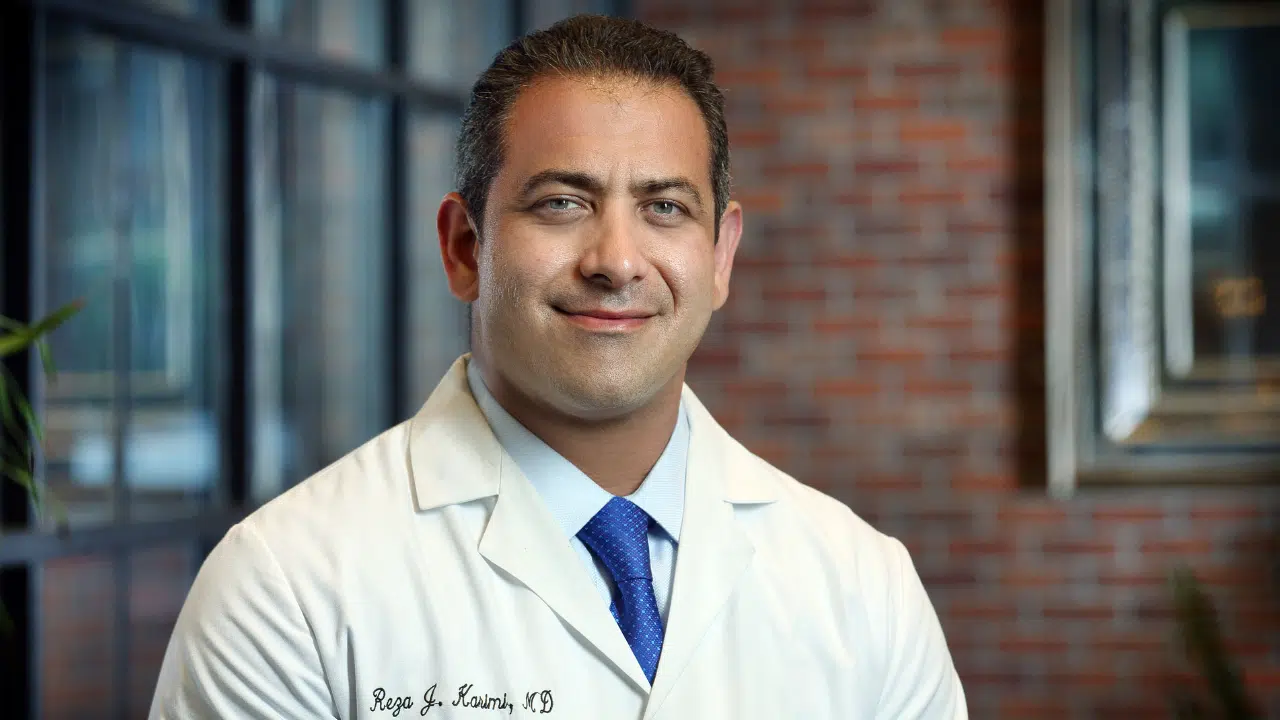Groundbreaking new technology creates new hope for brain aneurysm patients


Dr. Reza J. Karimi is not only among the few neurosurgeons in the country with advanced training in open microvascular neurosurgery and endovascular neurosurgery – he’s also an assistant neurosurgery professor. That means he’s just as open to developing and teaching new ways to treat life-threatening conditions that benefit his patients and the next generation of brain specialists.
Among those is the innovative NeVa device for vasospasm. Dr. Karimi is the only neurosurgeon in the Northeast currently using the non-invasive technology to treat the condition that affects as many as 50 to 90 percent of patients with a brain aneurysm rupture.
Vasospasm is a constricting, narrowing or tightening in your artery. After a brain aneurysm bleeds, patients can have vasospasm for up to two weeks, putting them at risk of a potentially serious stroke. Vasospasm reduces blood flow through the artery, sending less oxygen than normal to nearby tissues. Vasospasm can occur in many parts of your body, like the feet and hands – but the brain is one of the most concerning as a stroke is irreversible once it occurs.
Treating a ruptured brain aneurysm includes time in the intensive care unit, with rounds of medications and IV fluids to maintain steady blood flow to the brain after the aneurysm has been secured. If these measures are not effective and the patient is at risk for a stroke, Dr. Karimi can often open arteries with balloons or medications. But these techniques have their limits and their own risks. NeVa technology offers a better and more effective way to treat vasospasm using a minimally invasive approach. The device enters the artery and acts like a stent to stretch the artery slightly for just three minutes, and is then quickly removed. The vasospasm typically then resolves over time, after the procedure.
The results of new technology that helps keep him at a 90% success rate of patients treated without surgery are encouraging and make treatment choices easier.
NeVa VS is the first and only FDA HDE approved device for the adjunct treatment of symptomatic cerebral vasospasm following aneurysmal subarachnoid hemorrhage. New Jersey Brain and Spine is the only practice in the Northeast part of the U.S. where it is currently a treatment option.